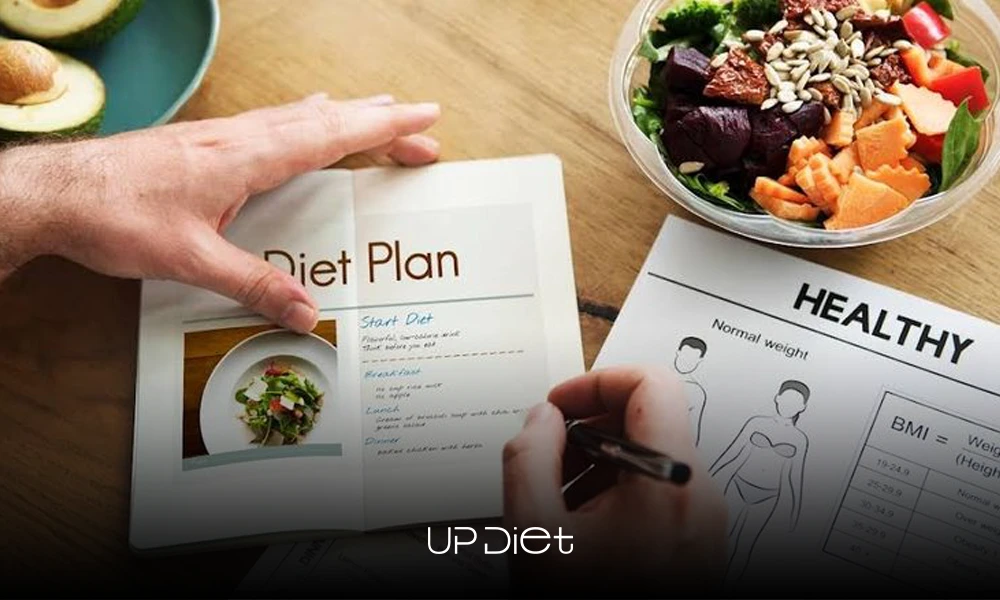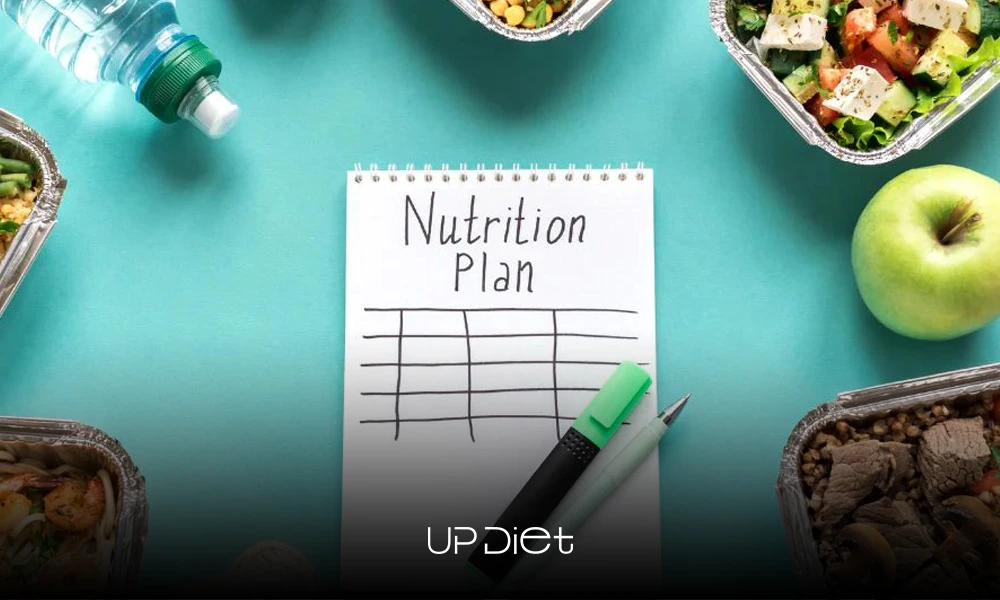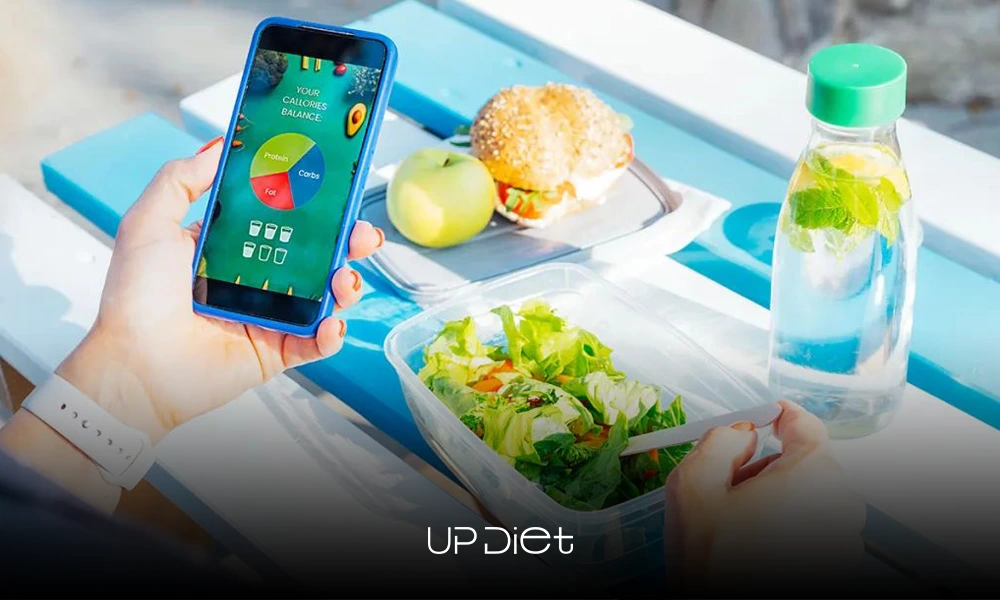Get a plan made for your unique body and goals
Lose Weight the Smart Way: Order Your Personalized Diet Plan Now

The personalized nutrition market is worth $3.5 billion in 2025, and is predicted to reach $5.3 billion by 2035(?). The reason is apparent: it’s expected to be an alternative to traditional diets (especially weight loss diets) with general advice.
Today, we’re going to learn how these plans work, where they succeed or fall short, and which complementary/alternative strategies boost their results.
What Is a Personalized Weight Loss Diet?
A personalized weight-loss diet is a nutritional plan built around you. It uses your goals (weight/health targets), body metrics (weight, BMI, composition), eating patterns, medical history, preferences, and daily habits to effectively determine calorie intake, macronutrient ratios, meal timing, and ingredient selection.

These are the basics of a personalized weight loss diet. In modern versions, there might be extra data (metabolic markers, genetic variants, gut microbiome) to adjust recommendations and create the best diet.
Personalized weight-loss diets start by gathering the basics about you, your body metrics, goals, eating patterns, daily habits, and any relevant medical history. This information builds a clearer picture of how you eat, how your body responds, and what might be getting in the way of steady progress.
From there, the plan adjusts the essentials: calorie targets, macronutrient ratios, meal timing, and the types of ingredients you’re more likely to stick with. These tailored adjustments remove guesswork and make the diet feel more natural to follow over time, something generic plans often fail to do.
What Can Personalization Actually Improve?
Unlike one-size-fits-all diets, this approach is built to fit your life, which leads to:
- Better adherence: The likelihood of you sticking to the plan is higher because everything (from meals and their timing to the main goals) matches your preferences and routine.
- Precise calorie targeting: Your needs are estimated based on body metrics and activity; there’s no guesswork or average numbers.
- Satiety management: If you struggle with hunger between meals, these diets will prioritize protein, fiber, or meal timing to prevent constant snacking.
- Nutrient matching: Personalized diets also take health conditions into account. For instance, they limit simple carbs to reduce insulin resistance, or include more protein to maintain muscle mass during a weight-loss diet.
- Sustainability: Small habit tweaks, swapping meals to suit preferred cuisine, and other guidelines help progress last in the long term.
Limitations and Misconceptions

These diets can’t guarantee a specific weight-loss amount because behavior, environment, and biology also interact (often unpredictably) with this process. Here are some of the standard limits and misconceptions of this method:
- It can’t predict behavioral changes, such as motivation, stress, or social factors, that may affect adherence. The same goes for environmental barriers like food access, time, and finances, too.
- It often doesn’t consider gut microbiome health (diversity and activity) and its notable effects on how your body processes food.
- It also doesn’t guarantee rapid or permanent weight loss. Unrealistic promises are false, and what matters most is long-term lifestyle changes.
- According to studies, such as this one on the Wiley Online Library, personalized nutrition trials show small or mixed effects unless combined with behavioral support.
Is a Personalized Weight Loss Diet Useful in Real Life?
When used correctly, yes. To maximize the benefits, you need to know when a personalized weight loss diet is most useful, when it helps little, and why it’s not ideal on its own:
- When it helps: It’s the perfect tool if generic plans repeatedly fail you because of hunger, food dislikes, or schedule conflicts. It’s also useful for people with special medical needs and treatments.
- When it helps a little: Without behavior changes, these diets won’t be the one-time fix that some expect. Plans that are only personalized in name (no fundamental habit/support changes) won’t help either.
- Why it’s not sufficient alone: sustainable weight loss depends on consistency over months or even years. This approach reduces barriers without a doubt, but can’t replace time, effort, and commitment.
Alternative or Complementary Personalization Methods

Personalization methods have a broad spectrum from simple tracking to advanced biological tests. For instance:
- Data-driven tracking: This method tracks food and activity in real time and combines them with feedback loops. These tech-delivered options often yield better results than general advice.
- Microbiome-based approaches: These methods create meal plans based on each person’s unique gut composition, a key player in response patterns and metabolism.
- Genotype-guided plans: Also known as precision nutrition, this method inspects gene variants to determine ideal foods and diet. (recommended as a complementary method, not an alternative)
You can also go for personalized nutrition providers, like UpDiet, which combine algorithms, users’ DNA or microbiome data, and lifestyle tips to tailor plans.
Final Thoughts
The bottom line is that an individualized weight-loss diet is a powerful tool; however, it’s best used alongside consistent habits, monitoring, and support for lasting results.
- In this post:
- What Is a Personalized Weight Loss Diet?
- What Can Personalization Actually Improve?
- Limitations and Misconceptions
- Is a Personalized Weight Loss Diet Useful in Real Life?
- Alternative or Complementary Personalization Methods
- Final Thoughts



